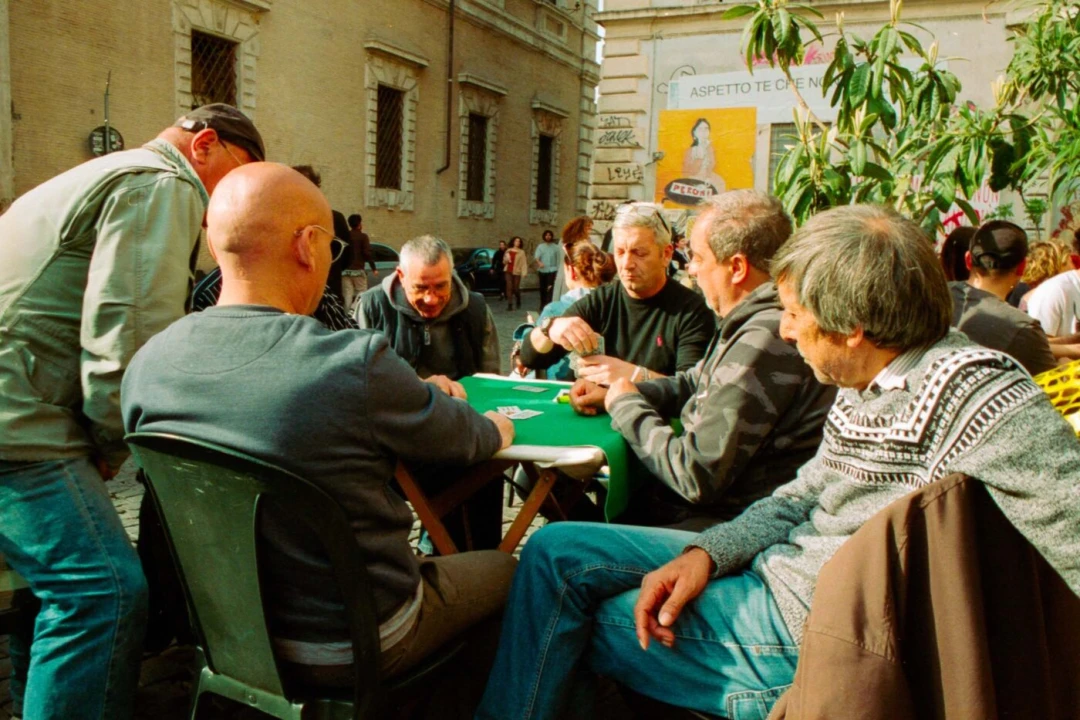Sometimes referred to as “Romanaccio”–with the pejorative “accio” suffix emphasising its vulgar, bawdy qualities–this dialect is no-nonsense and direct, a linguistic embodiment of the Roman people. Listen for the dropping of vowels and the doubling of consonants–quando becomes quanno, ogni becomes gni–as well as prolific swearing, profanity, and the word “moccolo”, used frighteningly frequently, but stripped of the offensiveness that it carries in Standard Italian.
Romanaccio is funny. The comic associations with the dialect are, in part, a result of the works of film directors such as Carlo Verdone, who often includes over-the-top uses of dialect for humorous effect. (See: the scene in Acqua e sapone in which the protagonist tries and fails to convince his grandmother to respond to his questions in Standard Italian rather than Roman dialect.)



